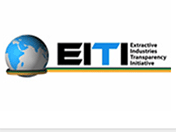“This sourcebook will be a key tool to have a robust framework in place to ensure that mining revenue and its benefits build national equity to boost shared prosperity and ensure channels for sustainable revenue generation, “ said Vijay Iyer, Director, Sustainable Energy and Extractive Industries Department, The World Bank Group.
Administrative Capacity Building is Key
“As governments focus on attracting investment in developing countries, they often forget that once those revenues start rolling in the state needs to be prepared to administer them,” said Boubacar Bocoum, Lead Mining Specialist at The World Bank. “Tax collection capabilities must be prepared to handle the complexities of the mining industry.”
“How to Improve Mining Tax Administration and Collection Frameworks, A Sourcebook” is aimed at meeting this need. It is designed to assist Ministries in charge of Finance and Mines to analyze and improve their effectiveness and efficiency in handling common issues that arise in the administration of mining revenues.
The Sourcebook was produced by the World Bank’s Oil, Gas and Mining unit in partnership with the Centre for Exploration Targeting of the University of Western Australia. The Centre’s team assessed mining revenue collection and practices in Burkina Faso, Ghana, and Mali.
Review highlights included:
- Physical and financial control points.
- Adequacy of information collection and sharing;
- Skills, systems, processes, cooperation, and coordination mechanisms between various government administrations that affect the collection of mining revenues.
Data collected from the countries were analyzed and supplemented with key elements from best practices in mineral tax collection administration procedures and processes found in developed countries, in particular Australia.
The Sourcebook focuses on administration and collection of mineral royalties. It analyses the relevant administrative processes for the most common types of royalties. The publication also provides insights into royalty audit processes and the administration of penalties for delay or default of royalty payments.
Need for Better Communication and Greater Transparency
Lastly, the Sourcebook examines the organizational and resourcing aspects of an effective and efficient mineral revenue administration system. Included is a discussion of the institutional structure needed for dealing with the mining industry, including the need for fiscal policy formulation to take into account administrative capacities, allocation of roles and responsibilities, and avoiding overlaps. The sourcebook also addresses the benefits of a culture of information sharing between revenue agencies (generally in the Finance Ministry) and agencies with knowledge of mining processes and equipment (generally in the Mines Ministry).
“Information sharing between the Ministry of Mines and the Ministry of Finance is critical for effective tax collection,” said Abou Bakar Traoré, Former Minister of Finance from Mali. “It is very difficult for the Ministry of Finance to collect royalties correctly if they are not informed of contracts, negotiations and other technical information that may be in the area of the Ministry of Mines.”
In the end, improved mineral tax collection in the extractive industries will increase the capacity of many countries to generate internal revenue and assure they are collecting the correct amount. The Extractives Industry Transparency Initiative (EITI) has made great progress on bringing transparency to the payment of extractive industry revenues but the EITI does not allow countries to verify if the correct amount of revenues is being paid. Strengthened tax collection capacity facilitates greater coordination and information sharing to be sure that the correct amount of revenue is paid from companies to governments.
“How can we know what the mining companies are paying if the tax collection administration is not professionally organized to capture and provide this data correctly?” said Kwaku Boa-Amponsem, Administrator of EITI Ghana.
Training Workshops to Implement Best Practices
Tax administration authorities from countries throughout Africa will be participating in training workshops during 2014 to incorporate best practices from the Sourcebook into their work. Starting with South Africa in February, Tanzania in May and Ethiopia in late summer, these workshops will bring together authorities from ministries of finance and mines, as well civil society, to learn how best to improve mining tax collection in the context of their country.



